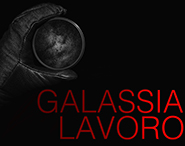Governance in the EU
Governance in the European Union has always been a matter of alliances. Although EU treaties invoke the political union as the final goal, politicians know how difficult it can be to balance European common values with national political and economic needs. The economic crisis exacerbated this duality, demonstrating the impossibility of conciliating the public virtue of a united Europe with the private vicious and the harmful effects of budget imbalances.
Germany realized this difficulty some days ago, when Mario Monti, the new Italian Premier, and David Cameron wrote a letter to European institutions, asking them to support their free market vision of economy, instead of the socialist German one.
The letter contains a condemnation of the excessive strictness of European fiscal rules, which have shaped European fiscal policies since the Treaty of Maastricht, forcing the majority of governments to create budget surpluses, cut down on public expenditures, raise taxes and reduce the total amount of public debt.
Continua a leggere su The Commentator.com














